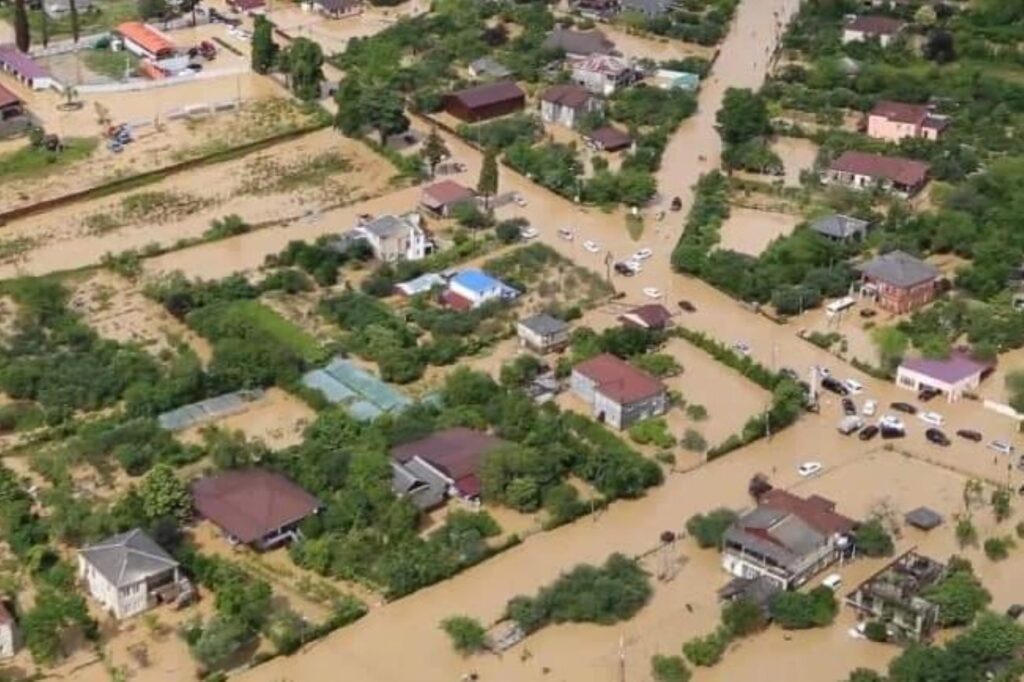Severe flooding has caused widespread devastation in western Abkhazia, after heavy rains over the weekend.
Roads were destroyed and houses flooded in Gagra and in villages near Pitsunda (Bichvinta), with the region also suffering damage to energy and water infrastructure after heavy rains on Friday night and Saturday morning. There was no electricity in Gagra region for almost all of Saturday.
The flooding also damaged 200 metres of railway tracks in Gagra region, bringing rail transport from Russia to a halt.
On Saturday and Sunday, the downpour caused damage to power lines in eastern Abkhazia, with the area between Ochamchira (Ochamchire) and the border facing power cuts on Monday morning.
Since Sunday, rescue workers have been searching for a Russian tourist, who was reportedly swept away by a flooded river while on holiday in Gudauta region with her husband.
Abkhazia’s Tourism Minister, Teimuraz Khishba, on 10 July urged for all beaches to be closed for several days, to avoid casualties. Hotels also appealed to Russian tour operators to suspend their bookings, in light of the weather conditions and transport issues.
On Monday, President Aslan Bzhaniya travelled to western Abkhazia, and announced that the supply of water and electricity would soon be restored, as would road traffic.

He also promised that both residents and tourists would be provided with food, water, and assistance in the meantime.
The rain is expected to continue on Monday, particularly in the mountains, with meteorologists warning that this could lead to other large rivers in Abkhazia overflowing.
Residents of the flooded areas posted videos and photos of the floods’ impacts on social media, with many claiming that the devastation was caused not just by the weather, but by poor infrastructure and environmental management.
‘There are several reasons for the damage: in addition to heavy rainfall, river pollution and poor drainage of rainwater played a destructive role. Small streams and streams clogged with garbage overflowed their banks’, wrote Levan Lagulaa, head of public relations for the committee for sovereignty.
‘If society does not react when timber is removed, when rivers are clogged, when facilities are built where they should not be, or when laws, including those of nature, are simply violated, something similar is likely to happen. It's not just the heavy rain that's to blame for these dire consequences’, he added.
For ease of reading, we choose not to use qualifiers such as ‘de facto’, ‘unrecognised’, or ‘partially recognised’ when discussing institutions or political positions within Abkhazia, Nagorno-Karabakh, and South Ossetia. This does not imply a position on their status.




 10 July 2023
10 July 2023



